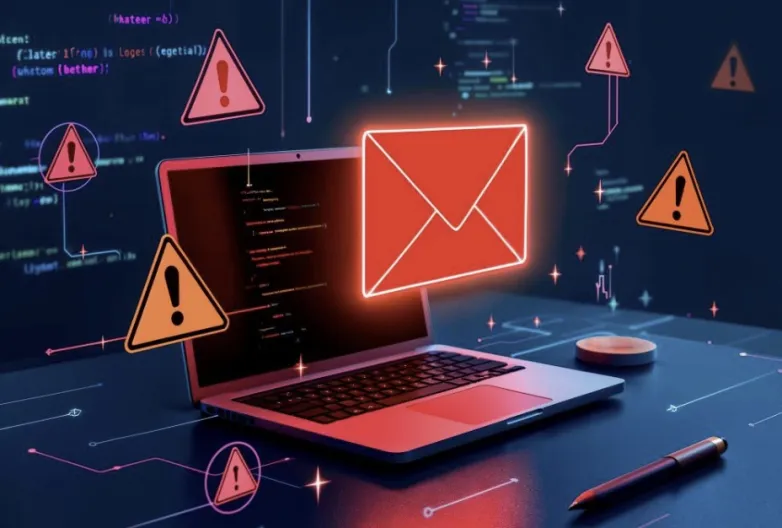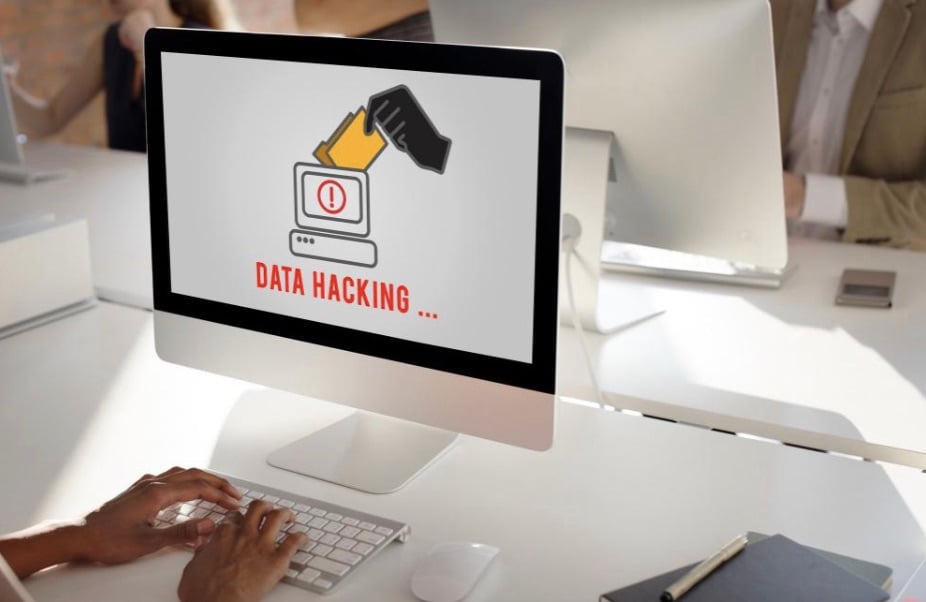Cyber Hygiene for Solar Companies: Protecting Your Data from Email Threats

Modern technology allows solar companies to connect with the global market. These entities handle large amounts of data - from billing to project design and remote systems. This information is useful to cybercriminals which makes the solar energy sector a prime target. Hackers use malware, phishing and social engineering to implement attacks through emails.
Consistent cyber hygiene can prevent most of these attacks and save resources. Measures like MFA, stronger passwords and smart cybersecurity improve data security. Invest in backups, user training and system updates to avoid costly online breaches.
Understanding cyber hygiene for solar companies
Many cybersecurity challenges for solar companies lead to monetary losses and reputation risks. Cyber hygiene for solar companies includes actions taken to protect devices and systems from online attacks. Online cleanliness is a mandatory practice for every modern organization. It involves things like employee training, round-the-clock monitoring and buying smart tech.
Emails are an important data breach point that organizations should never overlook. Regardless, many users feel they cannot get a virus from opening an email. The truth is that a simple click on an email attachment or link can stop an entire system from functioning. You require systematic security steps for your solar investment to protect your reputation and clientele. A strong solar cybersecurity policy can secure your company’s information from hackers. It ensures your business doesn’t become a successful target for the hackers. A robust cybersecurity plan includes various aspects ranging from using a specialized Mac protection tool for combating malware and viruses to using a reputed cloud storage for data storage.
Types of email threats that cause cybersecurity challenges for solar companies
Traditional mail was overtaken by email as the main communication and marketing method for organizations. Unfortunately, they have become one of the top attack methods by online gangs. You cannot effectively practice cyber hygiene for solar companies if you fail to understand the attack methods used by these gangs. Attacks may happen through the following strategies:
-
Business email compromise (BEC) where attackers pretend to be senior managers. They first hack their email accounts and send fake instructions to different workers.
-
Phishing attacks, where hackers send links or attachments to unsuspecting recipients. They may pretend to be genuine suppliers or customers ready to offer help.
-
Malware attacks that include spyware or ransomware hidden in attachments. These attacks can also be delivered through software or websites.
-
Spear phishing, where hackers personalize emails containing your name, telephone or department name. They first research your company and workers.
Why are cybercriminals interested in solar companies?
Cybercriminals are interested in solar companies because of the valuable information they have. They know they can steal banking details for their customers and the companies themselves. They can extract telephone numbers, email addresses and names from the databases. Several other reasons make this sector an important target for attacks through email.
Limited solar cybersecurity budgets - Online criminals know most solar companies are small and set aside limited data protection budgets. They know this leaves the organizations vulnerable to easy attacks.
Wide remote access - Hackers know solar companies seek customers globally. Due to this, they connect through millions of devices and systems. This creates many weak points for unauthorized entries.
Connections with other organizations - Cybercriminals understand these companies work closely with vendors and governments. A successful attack on a third party can lead to easy access to the solar organization.

Image source: Freepik
Best practices and security steps for your solar investment
Developing systematic procedures to overcome cybersecurity challenges for solar companies is necessary. These steps lead to consistent cyber hygiene within an organization and beyond. It makes sure your company does not become the latest victim of an attack. Here are the best practices you should consider:
Implement genuine cybersecurity tools
Attacks through emails can come through infected cybersecurity tools like antivirus software and firewalls. Some of these tools may contain viruses or phishing links or malware. Buy protective software from credible developers.
Consistent training and follow-ups
Training limits chances for breaches caused by human errors. It helps teams understand how to avoid opening emails from unknown sources. They learn to test links and attachments for infections. Make the training and follow-ups regular.
Create backups
Successful strikes could cause your company to lose all data. Backups make sure your business does not stop because of an attack. Choose secure places to store data remotely. Make sure all local data is stored in the cloud or external hard disks.
Update software
Software updating provides your organization with the current security settings. Monitor all systems and devices, including firmware to make sure they are always updated. Important systems include email programs and operating systems.
Strong access control and authentication
Controlled access limits human errors and insider threats that cause the biggest solar cybersecurity impact. Allow only authorized people to access certain databases. Implement strong authentication measures and make sure users create strong passwords. Create an elaborate response plan for your IT team and other users.
Creating an acceptable cyber culture and hygiene
One person or team cannot build effective cyber hygiene for solar companies. There should be a collaborative effort among different departments and stakeholders. Help everyone work harder to adopt a cyber hygiene culture for the organization. Extend this culture to third-party users and clients.
This practice should be acceptable to everyone to limit resistance and lack of adoption. Lack of cyber hygiene leads to many cybersecurity challenges for solar companies. An organization may experience significant financial losses and data theft. Its reputation could be damaged and it may face many legal problems.
Is there hope for improved email security for solar companies?
The solar energy sector is expanding and technology is smarter today than some years back. There is hope for solar cybersecurity due to emerging technologies like AI-powered spam filtering and encryption solutions. Modern organizations benefit from secure cloud services for backups and predictive tech for improved data security. These solutions reduce solar cybersecurity costs and improve recovery speed.
Conclusion
Cyber hygiene for solar companies requires a dynamic approach that ensures adaptation to changes as they come. The environment may look complex, but training and investing in technology can help. Simple email hygiene, like avoiding opening suspicious links and using strong passwords is critical. Simple mistakes like downloading an infected attachment can cause the greatest damage. A strong cybersecurity foundation should be the desire for every solar energy organization.
Also read
- Home EV Charging Stations in Ireland: How Much Can You Really Save?
- Automated File Conversion Services: Transform Documents Without Manual Work
- The Rapid Evolution of Direct Current Fast Charging for Electric Vehicle Fleets
- Scaling Data-Driven Campaigns Without Breaking Your Stack
- The 12th World Sustainability Forum (WSF-12)

